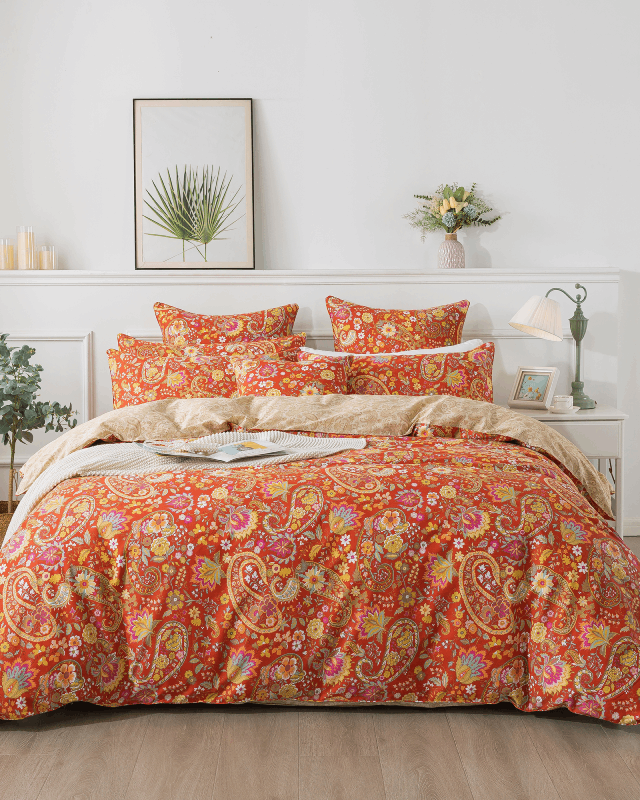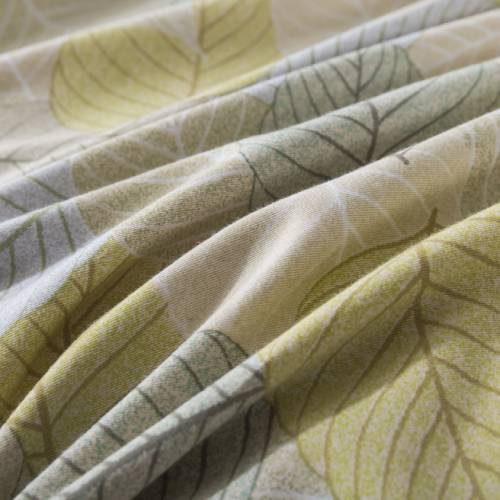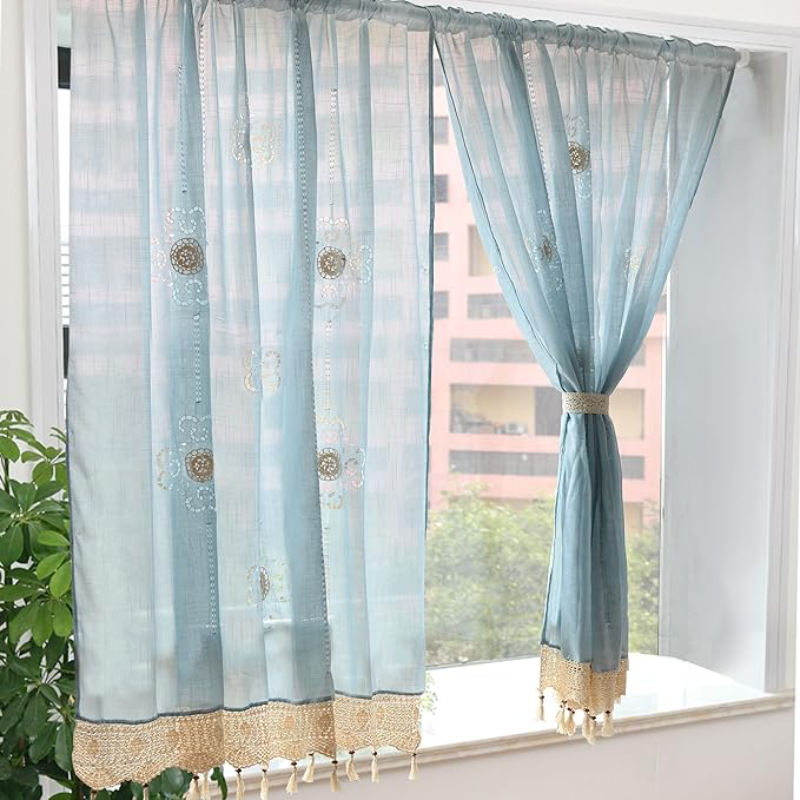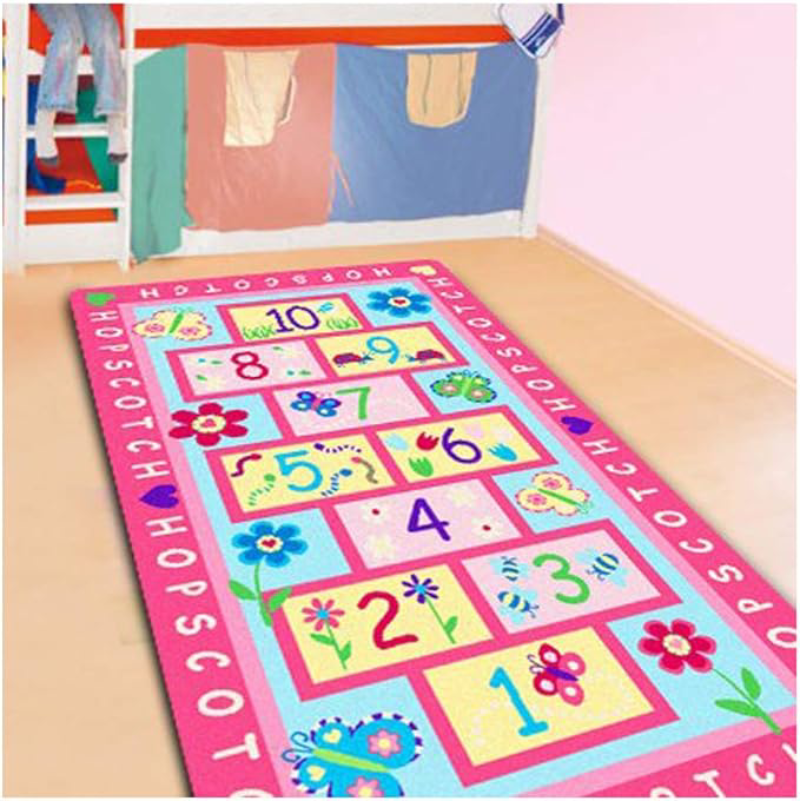When it comes to selecting bed sheets, one of the most significant choices you'll make is whether to go for pure cotton or a cotton blend. Each option has its unique characteristics, advantages, and disadvantages that can affect your sleep experience, comfort, and even your overall bedding aesthetics. In this blog, we will delve into the differences between cotton and mix cotton bed sheets, helping you make an informed decision for your bedding needs.
Understanding Cotton Sheets
Cotton sheets are made entirely from cotton fibers, a natural material harvested from the cotton plant. Known for their softness, breathability, and durability, cotton sheets have been a staple in bedding for centuries. They come in various weaves and thread counts, which can influence their texture, appearance, and performance.
Benefits of Cotton Sheets
Breathability: Cotton is highly breathable, allowing air circulation that helps regulate body temperature. This quality makes cotton sheets an excellent choice for warm climates or for those who tend to sleep hot.
Softness: Cotton sheets are known for their luxurious feel against the skin. Over time and with regular washing, they become even softer, providing a cozy sleeping environment.
Durability: High-quality cotton sheets can withstand regular washing and wear, making them a long-lasting option. They maintain their appearance and feel even after multiple washes.
Hypoallergenic Properties: Cotton is a natural fiber that is less likely to irritate sensitive skin. It’s also less prone to harboring dust mites and other allergens compared to synthetic materials.
Variety of Styles: Cotton sheets are available in various weaves, including percale, sateen, and muslin. This variety allows consumers to choose sheets that match their personal style and comfort preferences.
Drawbacks of Cotton Sheets
Wrinkling: One of the main downsides of cotton sheets is their tendency to wrinkle easily. If you prefer a perfectly smooth appearance, you may find yourself ironing your sheets regularly.
Cost: High-quality cotton sheets can be more expensive than some synthetic options. While they are an investment in comfort and durability, they may not fit every budget.
Shrinkage: Cotton sheets can shrink after the first wash, especially if they are not pre-shrunk. This can affect the fit on your mattress if you’re not careful.
Exploring Cotton Blend Sheets
Cotton blend sheets combine cotton with synthetic fibers like polyester or natural fibers like linen or bamboo. These blends aim to enhance the properties of cotton, providing additional benefits while addressing some of its limitations.
Benefits of Cotton Blend Sheets
Wrinkle Resistance: One of the most significant advantages of cotton blends is their resistance to wrinkling. The addition of synthetic fibers often results in sheets that maintain a smoother appearance without the need for ironing.
Durability: Blended sheets often boast increased durability. The synthetic fibers can make the sheets more resistant to wear and tear, prolonging their lifespan.
Affordability: Cotton blend sheets are typically more budget-friendly than 100% cotton options. If you’re looking for a cost-effective bedding solution, blends can be an excellent choice.
Moisture Wicking: Many cotton blends incorporate moisture-wicking properties, helping to keep you dry and comfortable throughout the night. This feature is particularly beneficial for those who sweat during sleep.
Versatility: Cotton blend sheets come in various styles and colors, allowing for easy coordination with your bedroom decor. They often feature vibrant prints and patterns that might not be as readily available in pure cotton.
Drawbacks of Cotton Blend Sheets
Less Breathable: While cotton blends can be comfortable, they may not offer the same level of breathability as 100% cotton. This can be a concern for hot sleepers who need good airflow to maintain a comfortable temperature.
Synthetic Feel: Depending on the blend, some people may find that cotton blends don’t provide the same soft, natural feel as pure cotton. This can affect overall comfort and sleep quality.
Limited Eco-Friendliness: Blending cotton with synthetic fibers can diminish the eco-friendliness of the sheets. If sustainability is a concern for you, it’s essential to consider the environmental impact of the materials used.
Which Option is Best for You?
Choosing between cotton and cotton blend sheets ultimately comes down to personal preference and specific needs. Here are some considerations to help you decide:
1. Sleep Environment
- Hot Climbs: If you live in a warm climate or tend to sleep hot, 100% cotton sheets may be the better option due to their breathability.
- Cooler Climates: In cooler environments, a cotton blend with additional warmth properties could be more comfortable.
2. Lifestyle and Care
- Low Maintenance: If you prefer low-maintenance bedding that doesn’t require frequent ironing, cotton blends may be ideal.
- Quality Over Time: If you value the softness and feel of natural fibers and don’t mind the maintenance, pure cotton might be the way to go.
3. Allergies and Sensitivities
- Sensitive Skin: For individuals with sensitive skin or allergies, pure cotton sheets are often a safer choice due to their hypoallergenic properties.
- Durability Needs: If you need bedding that withstands wear and tear (e.g., for kids or pets), cotton blends can offer additional durability.
4. Budget Considerations
- Cost-Effective: If you’re shopping on a budget, cotton blend sheets provide a more affordable option while still offering comfort and style.
- Investment: If you’re willing to invest in quality, high-thread-count cotton sheets can provide a luxurious sleeping experience.
Caring for Your Sheets
Regardless of the type you choose, proper care can enhance the longevity and comfort of your sheets. Here are some tips:
Washing: Always follow the care instructions on the label. Generally, washing in cold water helps prevent shrinkage and maintains the integrity of the fibers.
Drying: For cotton sheets, air drying is often recommended to preserve softness. If using a dryer, opt for a low heat setting to reduce the risk of shrinkage.
Ironing: If you prefer a crisp look, cotton sheets can be ironed while slightly damp. Cotton blends may not require this step due to their wrinkle-resistant properties.
Storing: Store your sheets in a cool, dry place to prevent mildew and maintain freshness. Consider using cotton storage bags to keep them breathable.
Conclusion
Choosing between cotton and cotton blend bed sheets depends on your specific needs, preferences, and lifestyle. Pure cotton sheets offer unmatched softness, breathability, and hypoallergenic properties, making them a timeless choice for many. On the other hand, cotton blend sheets provide convenience, durability, and cost-effectiveness, appealing to those looking for a practical solution.
By understanding the benefits and drawbacks of each option, you can select the bedding that best suits your sleeping habits and style preferences. Whatever you choose, quality sleep starts with the right bedding, and investing in comfortable sheets will enhance your rest and overall well-being.







